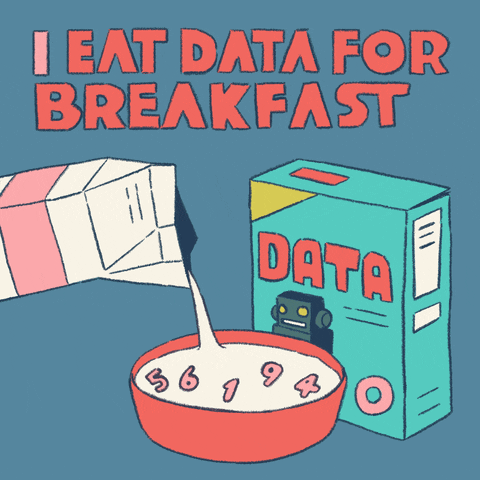Data analytics is a field that has been growing rapidly in recent years, driven by the increasing volume and complexity of data available in every industry. As a result, data analysts have become a valuable asset for businesses looking to make data-driven decisions and gain a competitive edge in the market.
If you're considering a career in data analytics, Germany is a great place to start. The country has a strong economy and a thriving tech industry, with many opportunities for skilled professionals in the field. However, with so many options available, it can be difficult to know where to begin.
In this blog post, we'll answer some of the most frequently asked questions about data analytics, including what it is, what skills you need to succeed, and what kind of jobs are available in Germany. We'll also provide recommendations for the best courses and certifications to help you get started on your data analytics journey. Whether you're a recent graduate, a career changer, or simply curious about the field, this post will provide you with valuable insights and resources to help you succeed in the exciting world of data analytics.

FAQ's About Data Analytics
What is Data Analytics?
Data analytics refers to the practice of scrutinizing and interpreting data to extract valuable insights that can aid businesses in making informed decisions. It encompasses the activities of compiling, purifying, and structuring voluminous datasets, applying mathematical and statistical methods to detect patterns and trends, and presenting the findings in a precise and comprehensible format.
Data Analytics Boot Camp Training in Germany
What skills do I need to become a data analyst?
To become a data analyst, you will need strong analytical and problem-solving skills, as well as proficiency in data manipulation and programming languages such as SQL, Python, or R. You should also have a solid understanding of statistical concepts and techniques, as well as experience working with data visualization tools like Tableau or Power BI.
What kind of jobs are available in data analytics?
Data analytics has become a vital component of almost every industry, and as a result, there are a wide range of job opportunities available in the field. Some of the most common job titles in data analytics include:
Data analyst: A data analyst collects and analyzes data to identify trends, patterns, and insights that can inform business decisions. They may also be responsible for creating reports and visualizations to communicate their findings to stakeholders.
Data scientist: A data scientist is a more advanced role that involves not only analyzing data, but also designing and implementing statistical models and machine learning algorithms to make predictions and recommendations based on the data. Data scientists typically have advanced degrees in fields like statistics, computer science, or mathematics.
Business analyst: A business analyst works with stakeholders to identify business problems and opportunities, and uses data analytics to provide insights and recommendations for addressing them. They may also be involved in designing and implementing new business processes and systems.
Marketing analyst: A marketing analyst uses data analytics to analyze customer behavior, market trends, and other data sources to inform marketing strategies and campaigns. They may also be responsible for measuring the effectiveness of marketing campaigns and making recommendations for improvement.
Financial analyst: A financial analyst uses data analytics to analyze financial data, such as sales figures, expenses, and market trends, to help organizations make informed financial decisions. They may also be responsible for creating financial models and forecasting future performance.
These are just a few examples of the many job titles and roles available in data analytics. Depending on your interests and experience, you may find yourself working in industries such as healthcare, finance, marketing, technology, and many more.
What are some best courses for learning data analytics in Germany?
Here are the best Data Analytics courses in Germany:
Data Analytics Boot Camp Training
AWS Certified Data Analytics Specialty - Exam Preparation Training
Data Analysis with Microsoft SQL Report Builder Training
Microsoft Excel Data Analysis with Tables and PivotTables Training
Managing Data for Modern Analytics – Next Generation Architecture, Governance, and Curation Skills
Microsoft Excel 2016 Data Analysis and Power Tools Part 1
Introduction to Data Analysis Course
What are the benefits of a career in data analytics?
A career in data analytics can be highly rewarding, both professionally and financially. Data analysts are in high demand across many industries, and can enjoy competitive salaries, flexible working arrangements, and opportunities for career growth and advancement. Additionally, the work of a data analyst can have a significant impact on the success and growth of a business, making it a fulfilling and meaningful career choice.
What is the difference between data analytics and data science?
While both data analytics and data science involve working with data to uncover insights and inform business decisions, data analytics is typically more focused on using historical data to identify trends and patterns, while data science involves developing and implementing predictive models and algorithms to make recommendations for future actions.
What are some common data analytics tools and technologies?
There are many different tools and technologies used in data analytics, depending on the specific task and industry. Some common examples include programming languages like SQL, Python, or R, data visualization tools like Tableau or Power BI, and big data platforms like Hadoop or Spark.
How do I get started with data analytics?
To get started with data analytics, you will need to develop skills in data manipulation, programming, statistics, and data visualization. There are many online courses and tutorials available to help you learn these skills, as well as resources like Kaggle or GitHub where you can practice your skills on real-world datasets.
What are some ethical considerations in data analytics?
Data analytics can raise a number of ethical concerns, particularly around privacy, security, and bias. It is important for data analysts to be aware of these issues and to take steps to ensure that their work is conducted in an ethical and responsible manner.
How can I advance my career in data analytics?
To advance your career in data analytics, you may want to consider pursuing advanced degrees or certifications in related fields, such as data science or business analytics. You can also seek out opportunities to work on high-impact projects or take on leadership roles within your organization. Networking and building relationships with other professionals in the field can also be beneficial for career growth and advancement.
What are the data analysis techniques?
There are a variety of data analysis techniques used in data analytics. Here are some common techniques:
- Descriptive analysis involves summarizing and describing data using measures such as mean, median, and standard deviation. This technique is used to gain a better understanding of the data and to identify any patterns or trends.
- Inferential analysis involves making predictions or drawing conclusions about a population based on a sample of data. This technique is used to make generalizations about a larger group based on a smaller subset of data.
- Predictive modeling involves building statistical models or machine learning algorithms to make predictions about future events or trends. This technique is commonly used in fields such as finance, marketing, and healthcare.
- Text analysis involves analyzing unstructured data such as text documents, social media posts, and emails. This technique is used to extract insights from large volumes of text data, such as sentiment analysis or topic modeling.
- Data visualization involves creating visual representations of data using charts, graphs, and other visual tools. This technique is used to communicate complex data in a clear and concise manner, making it easier for stakeholders to understand and interpret.
- Time series analysis involves analyzing data over time, such as stock prices or weather patterns. This technique is used to identify patterns and trends over time and to make predictions about future events based on historical data.
- Cluster analysis involves grouping similar data points together based on their characteristics or attributes. This technique is used to identify patterns or segments within data that may not be immediately apparent and to group data points into meaningful categories.
- Regression analysis involves analyzing the relationship between one or more independent variables and a dependent variable. This technique is commonly used in fields such as economics, finance, and social sciences to identify the factors that influence a particular outcome or behavior.
How Python is used in data analytics?
Python is a popular programming language that is widely used in data analytics. Here are some ways in which Python is used in data analytics:
- Data cleaning and pre-processing: Python provides a variety of libraries and packages, such as Pandas and NumPy, that are used to clean and preprocess data. These libraries allow analysts to read and manipulate data in a variety of formats, remove missing values, and transform data into the format required for analysis.
- Data visualization: Python provides several powerful visualization libraries such as Matplotlib, Seaborn, and Plotly, which allow analysts to create visualizations and graphs to explore and communicate insights from their data.
- Statistical analysis: Python provides several libraries such as Scipy and Statsmodels, which allow analysts to perform statistical analysis on their data. These libraries allow analysts to perform a variety of statistical tests, build regression models, and conduct hypothesis testing.
- Machine learning: Python provides a variety of libraries such as Scikit-learn, Keras, and Tensorflow, that are used for machine learning. These libraries provide tools for data preparation, feature selection, model training, and evaluation, allowing analysts to build predictive models to make data-driven decisions.
- Big data processing: Python provides several libraries such as Dask and PySpark, which are used for big data processing. These libraries allow analysts to work with large datasets and perform distributed computing to speed up data processing and analysis.

Germany is home to a vibrant and rapidly growing data analytics industry, with many companies investing in data-driven decision-making processes. Popular cities in Germany for data analytics jobs include Berlin, Frankfurt, and Munich, which have seen a significant increase in demand for data analysts in recent years. In fact, according to a report by LinkedIn, data analytics is among the top 10 most in-demand skills in Germany, with a 56% year-on-year growth in the number of professionals in this field. With the rise of Industry 4.0 and the increasing importance of data-driven decision-making, the demand for data analysts in Germany is expected to continue to grow in the coming years.
In conclusion, data analytics is a rapidly growing field that offers a variety of exciting career opportunities. By leveraging the power of data, organizations can gain valuable insights and make data-driven decisions that can lead to increased profitability and success. Whether you are just starting out in data analytics or are looking to expand your skillset, taking a course or earning a certification can help you stand out in a competitive job market. At Bilginç IT Academy, we offer the best data analytics courses in Germany, with a range of options tailored to fit your needs and schedule. Our experienced instructors have been in the business since 1995 and are dedicated to helping you achieve your goals. Contact us today to learn more about our courses and start your journey towards a successful career in data analytics.